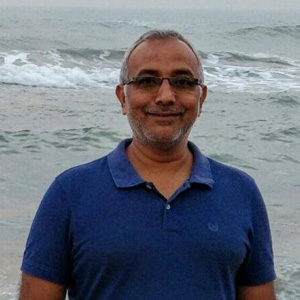
By TM Santosh Paul
Few months into my Toastmasters’ journey and lots of meetings later, I began to wonder why. Why is the Toastmasters’ meeting structured the way it is – with three sessions, role players, opening and presidential addresses, master of ceremonies and everything else that goes into it. As I delved deeper into it, I realised what an absolute genius Ralph C. Smedley was. In case you are wondering who that is, he is founder of the Toastmasters’ movement.
Allow me to share my thoughts on what I think went through Ralph C. Smedley’s mind as he put this jigsaw puzzle together. Let me start with the three sessions.
1. The prepared speech session: As its basic purpose, Toastmasters was meant to develop public speaking skills. This session is entirely about taking an individual, making use of manuals, mentors and evaluators, towards that goal of being able to speak well in front of an audience.
2. The evaluation session: Did I get the order wrong? Yes, but I have a reason for it and you’ll know why later. The evaluation session is enriching, especially to the speakers and evaluators – the speakers because they get an out-of-the-box view of their speech and the evaluators, because it teaches them to look at everything positively. This has been, at least personally, life changing for me – to look at the greener side of things.
3. The table topic session: This was a little confusing for me. Does
speaking impromptu mean so much in our professional life? Yes, it does, to an extent. It definitely develops thinking-on-your-feet skills and can take you places professionally. But then I looked at the aspect of filling up the gaps and it made complete sense – let me explain. The prepared speech session and evaluation session ensure that a certain set of members get their stage time. But what about the remaining members at the meeting? They need their stage time too and the table topic session is meant to fill that gap, just about perfectly – pure genius – hats off to you Mr. Smedley.
So, there you go – the three sessions and what I think of them. Am I missing something? For sure yes. Toastmasters’ was never meant to be about public speaking only. It is also about leadership. So where does that fit in to the jigsaw puzzle. Apart from all that the committee members are doing behind the scenes to keep the meetings going through their leadership, does the meeting itself have leadership opportunities? – I wondered.
Here are some of my thoughts. What are the leadership lessons – tangible or intangible – that are up for grabs at every meeting. Come to think of it – if nobody volunteers to play the sergeant-at-arms, president, master of ceremonies, general evaluator, listener, timer, ah-counter and grammarian roles, what would happen to the meeting? Disaster. Volunteering to play a role and doing it with passion and excellence is, I believe, taking a position of leadership.
What about the timing of each speech – the 5-7 minutes, 1-2 minutes and 2-3 minutes and the other addresses? As much as they are intended to inculcate a sense of discipline and time awareness, I also believe, that they meant to ensure that every member attending a meeting is provided a time slot at the stage. If all the speakers stay within the allotted times, it will ensure that purpose of stage time for everyone, is achieved. This is very important according to me, because, all members are there for a reason, having contributed their time, effort and finances – to become a better individual.
The master of ceremonies is then indeed, the most pivotal role, to ensure that all the above things mentioned happen so smoothly that nobody notices. It would be rude to liken that role to that of a puppeteer, but I think, it is similar. Staying in the background – unnoticed and pulling all the strings to ensure that the speakers on stage are the centres of attention.
Wonder if all that made sense. I’m sure all Toastmasters have their individual takes on the sessions and roles played. That was my take and I just felt like sharing it with you. Looking forward to reading your take as well.







Stay In Touch